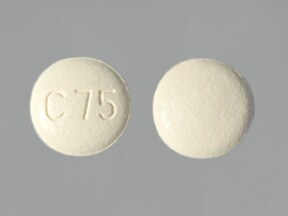
Relative risk reduction from blood pressure reduction is similar across populations with varying absolute risk, so the absolute benefit is greater in patients who are at higher risk independent of their hypertension (for example, patients with diabetes or hyperlipidemia), and such patients would be expected to benefit from more aggressive treatment to a lower blood pressure goal. The largest and most consistent cardiovascular outcome benefit has been a reduction in the risk of stroke, but reductions in myocardial infarction and cardiovascular mortality also have been seen regularly.Įlevated systolic or diastolic pressure causes increased cardiovascular risk, and the absolute risk increase per mmHg is greater at higher blood pressures, so that even modest reductions of severe hypertension can provide substantial benefit. Numerous antihypertensive drugs, from a variety of pharmacologic classes and with different mechanisms of action, have been shown in randomized controlled trials to reduce cardiovascular morbidity and mortality, and it can be concluded that it is blood pressure reduction, and not some other pharmacologic property of the drugs, that is largely responsible for those benefits. For specific advice on goals and management, see published guidelines, such as those of the National High Blood Pressure Education Program’s Joint National Committee on Prevention, Detection, Evaluation, and Treatment of High Blood Pressure (JNC). Many patients will require more than one drug to achieve blood pressure goals.

There are no controlled trials demonstrating risk reduction with Azor.Ĭontrol of high blood pressure should be part of comprehensive cardiovascular risk management, including, as appropriate, lipid control, diabetes management, antithrombotic therapy, smoking cessation, exercise, and limited sodium intake. These benefits have been seen in controlled trials of antihypertensive drugs from a wide variety of pharmacologic classes including the class to which this drug principally belongs. Lowering blood pressure reduces the risk of fatal and nonfatal cardiovascular events, primarily strokes and myocardial infarctions. Revised: Nov 2016Īzor is indicated for the treatment of hypertension, alone or with other antihypertensive agents, to lower blood pressure. Manufactured by: Daiichi Sankyo Europe GmbH, Germany.

Tablet Strength (amlodipine equivalent/ olmesartan medoxomil) mg Azor tablets are supplied for oral administration in the following strength and package configurations:
AZOR SIDE EFFECT CODE
Azor tablets are formulated for oral administration in the following strength combinations:Īzor tablets contain amlodipine besylate at a dose equivalent to 5 or 10 mg amlodipine and olmesartan medoxomil in the strengths described below.Īzor tablets are differentiated by tablet color/size and are debossed with an individual product tablet code on one side.


 0 kommentar(er)
0 kommentar(er)
